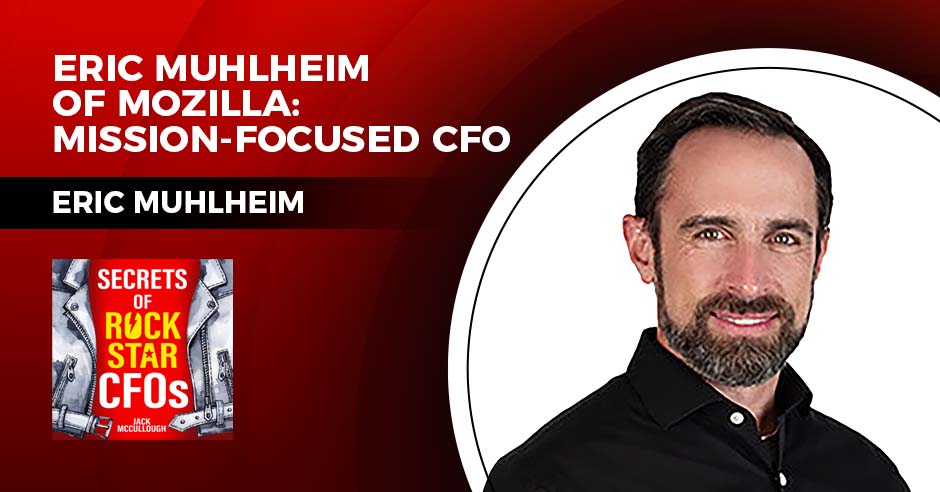Financial discipline isn’t just for finance leaders—everyone in the organization needs to be on top of a company’s financial goals and live within those constraints.
Angelo Gray, CFO of Seattle-based 98point6 Technologies, spoke with StrategicCFO360 about how to create a financially disciplined culture, what that can do for an organization and the biggest challenges and shifts for CFOs today.
Why is it important to establish a company-wide understanding and commitment to financial discipline?
Financial discipline is a cornerstone of effective business management, so it’s important that every employee grasps the significance of prudent financial decision-making. When everyone understands what money is coming in, what money is going out and what that means for the stability and success of the business, companies are better positioned to optimize resources, reduce wasteful spending and more effectively allocate funds where they’re needed most.
Fostering a shared commitment to financial discipline promotes trust and accountability across an organization. When employees are aware of financial goals and constraints, they can align their day-to-day efforts accordingly. Providing this visibility along with a clearly articulated why cultivates an environment where everyone feels responsible for the organization’s overall performance.
By comprehending the impact of their actions, employees are also better equipped to identify potential risks and recommend ways to mitigate them before it’s too late. Just like a skilled crew navigating their ship through perilous waters, our organization thrives when each member of the team is informed, engaged and willing to collaborate.
From an external perspective, investors have greater confidence in organizations that exhibit an evergreen commitment to financial responsibility through good times and bad—demonstrating this as a company-wide value can set you apart. Companies that manage their finances wisely are more likely to weather economic downturns, adapt to market volatility and be better positioned to deploy capital opportunistically.
What lessons would you offer an organization for establishing their financial reporting and performance metrics when launching a new business line?
This is a very timely question, having just gone through this process with 98point6 Technologies last year when we evolved from operating as a standalone virtual care clinic to now solely licensing our virtual care technology platform to health systems and other provider organizations. I would summarize my advice into three buckets.
Set clear expectations with the board and investors on how you will communicate with them and when. Involving this group early on builds trust and garners their support, which is essential for securing funding when needed and maintaining long-term relationships. Clearly articulate the strategic vision for the new business line, the key performance indicators you have established as a management team and the expected financial trajectory. Then follow up with regular communication and transparent reporting.
Redistribute workload across your finance and accounting teams if necessary. When launching a new business, it’s important to assess the associated tasks and responsibilities and allocate resources accordingly. The way you and your team worked in the past may not be the best way to work going forward. Ensure that your finance and accounting teams are adequately staffed and members possess the necessary skills to handle the specific needs of the new business. Consider cross-training team members to bridge any skill gaps and create a more seamless transition.
Manage a clean set of books for the new business line. I can’t stress enough that accurate and clear financial reporting is going to be critical for your success. Implement clear accounting policies and procedures to help you maintain clean and reliable financial records, and set up fresh bank accounts for the new business line to establish clear delineation of finances from existing operations. Implementing strong internal controls will prevent commingling of funds and financial reporting errors.
Most importantly, here, I’d say be honest with yourself. Through changes, not everything will go perfectly, so be sure to regularly review and reconcile accounts to identify and promptly resolve any discrepancies. All these efforts to keep your books clean as you go will not only help with decision-making by arming you with accurate information whenever needed, but you’ll also set yourself up for success with audits and compliance requirements.
Establishing this solid financial infrastructure is essential for financial clarity for all stakeholders.
What are some of the biggest challenges CFOs face when managing company finances through an acquisition or divestiture?
Reaching the point of acquisition or divestiture is typically a milestone achievement for any business. Yet, depending on the situation that brought you to this milestone, it may be bittersweet and certainly can be fraught with challenges.
One of the biggest is financial integration and/or disentanglement—the financial systems and data of the acquired company with the acquiring company, or conversely, in a divestiture, separating the financials of the divested entity from the parent company. These are incredibly detailed, difficult processes. Meticulous planning and careful execution help ensure a smooth transition. And of course, this attention to detail will also help you navigate the complex web of regulatory requirements and compliance issues that may arise.
Other challenges inherent to the earlier part of the process include accurately valuing the target company, assessing its financial health, identifying risks and uncovering potential liabilities or hidden issues that could impact the deal’s success.
I also want to note that CFOs aren’t just looking at numbers on a spreadsheet. Workforce and company culture sensitivities are also on our minds, particularly when dealing with a divestiture and managing the transition of affected employees. Ongoing communication with internal and external stakeholders, including employees, investors, lenders and regulators is non-negotiable. Being transparent and managing expectations throughout the process helps preserve trust and confidence.
Even with the most detailed planning, delays and unexpected challenges often come up, leading to increased costs, loss of value or even deal failure. CFOs must monitor progress closely and be able to adapt to changing circumstances as they arise.
How do you see the role of CFO evolving over the next few years? What’s different about it today than 10 years ago?
The CFO role today is a lot different than it was 10 years ago, and another decade from now we can expect it to have evolved even further. Perhaps the biggest change today is that the traditional emphasis on an accounting background is diminishing. Instead, CFOs with strong strategic and financial acumen are increasingly sought after. This shift recognizes the importance of CFOs as strategic leaders who can navigate complex financial landscapes and drive business growth.
They’re no longer confined to the role of “bean counter.” They now serve as trusted thought partners to CEOs, actively participating in shaping key strategic initiatives. Their insights extend beyond financial matters to encompass broader business strategy and decision-making—again, those budget numbers represent real people, real products and real business potential.
CFOs are also taking on more diverse responsibilities, including oversight of administrative functions, IT, legal and human resources. Some are even adopting dual roles as CFO/COO, reflecting their broader operational influence and their role in driving efficiency and performance throughout the company.
In the coming years, I believe the CFO’s role will continue to evolve in this direction, with an increasing focus on strategic leadership, cross-functional collaboration and a holistic understanding of the organization’s operations. This transformation underscores the CFO’s pivotal role in driving financial success and overall business growth. In my biased opinion, it’s an incredibly exciting and dynamic time to be at any level in this field.
What takeaways or career advice would you give other CFOs on how to approach/navigate their work today?
I would tell CFOs and aspiring CFOs to shift their focus from growing at all costs to ensuring long-term sustainability. For a lot of companies, driving as much revenue as quickly as possible is a hill they die on, chasing large valuations in lieu of profitability. But measuring and analyzing each growth opportunity rigorously will help chart the fastest path to profitability, which is even more important during turbulent economic times.
I’d also caution CFOs against waiting too long for their next fundraising round. This is risky, especially when market conditions are uncertain. CFOs should explore creative and diverse financing alternatives, considering options like debt financing, strategic partnerships or even non-traditional sources of capital. Being open-minded and opportunistic about financing can help secure resources when needed.
And I’ve said it before, but it bears repeating: Clear and consistent communication always wins the day. Keeping everyone informed and aligned with the company’s financial strategy and challenges fosters trust and ensures a unified approach to overcoming obstacles.
CFOs have a tough job on their hands—they’ve got to juggle chasing growth while keeping the financial ship steady. But it’s not impossible. To shine in our roles we need to step up to the helm of that ship, be visible, think outside the box, stay open and honest and work closely with others. That’s how we can become top-notch leaders who are able to sail through the tricky waters of today’s business world.








